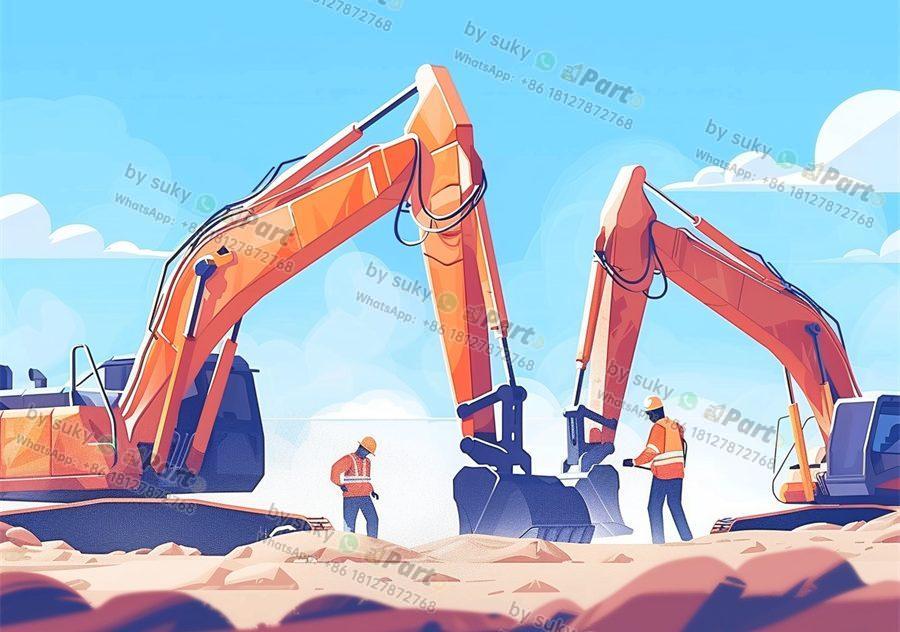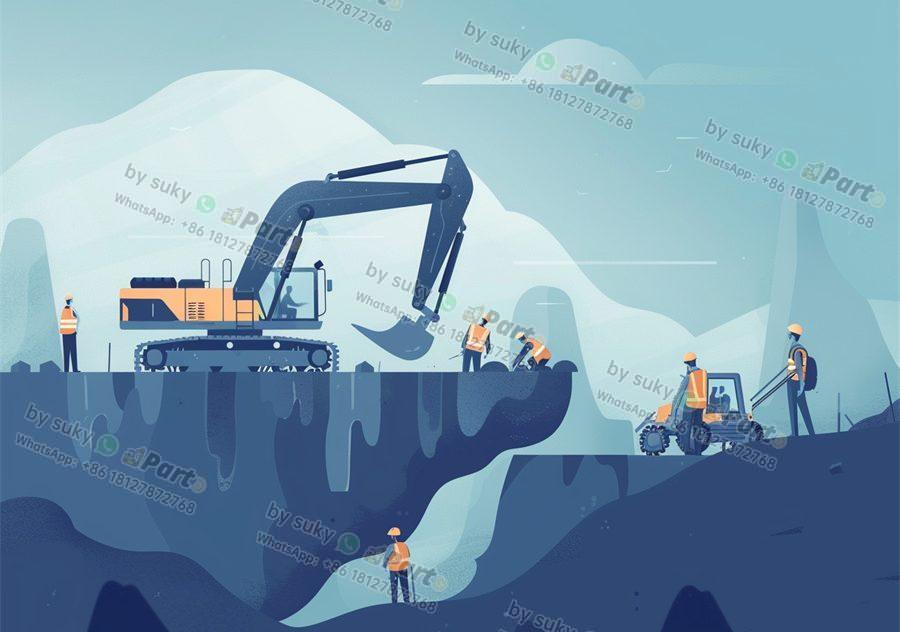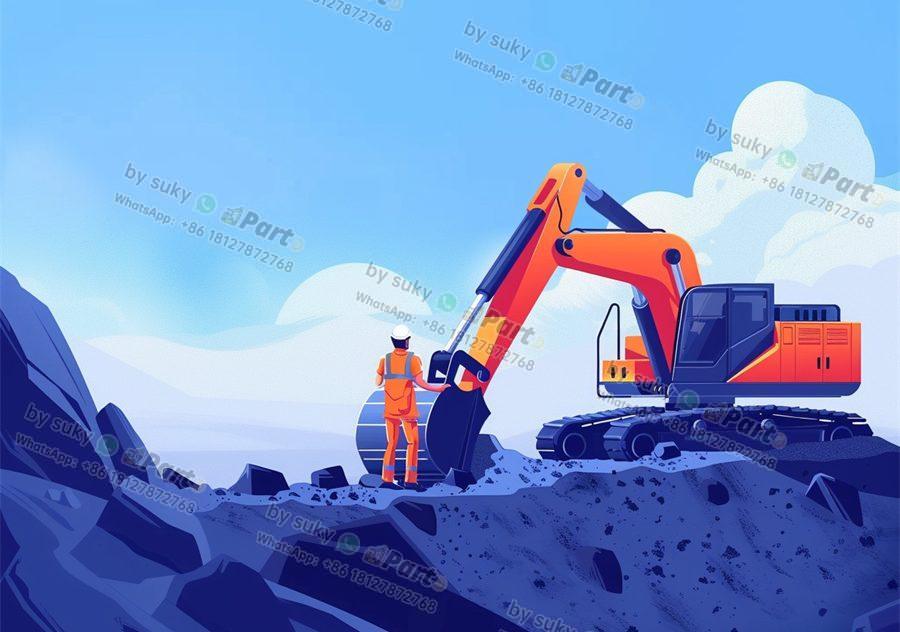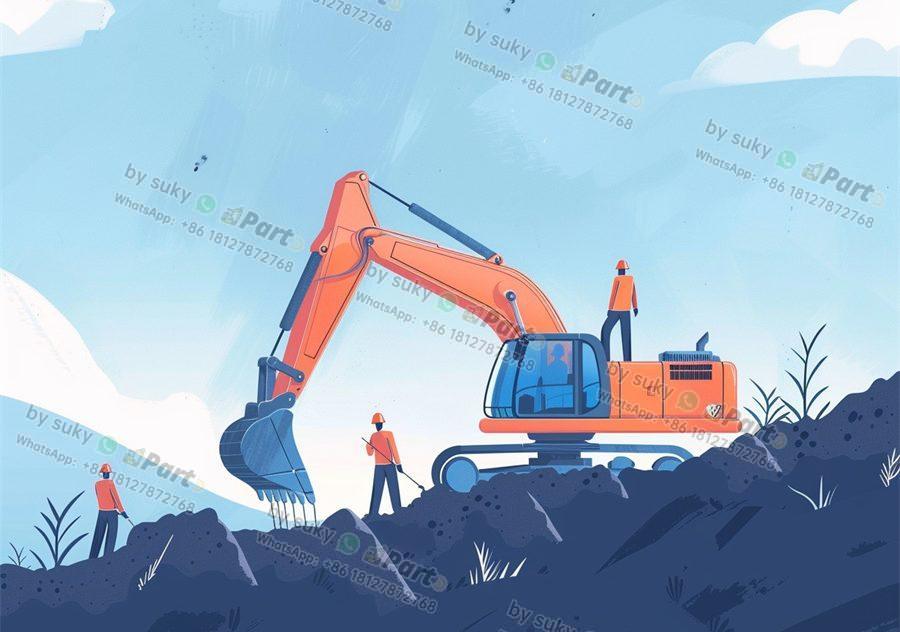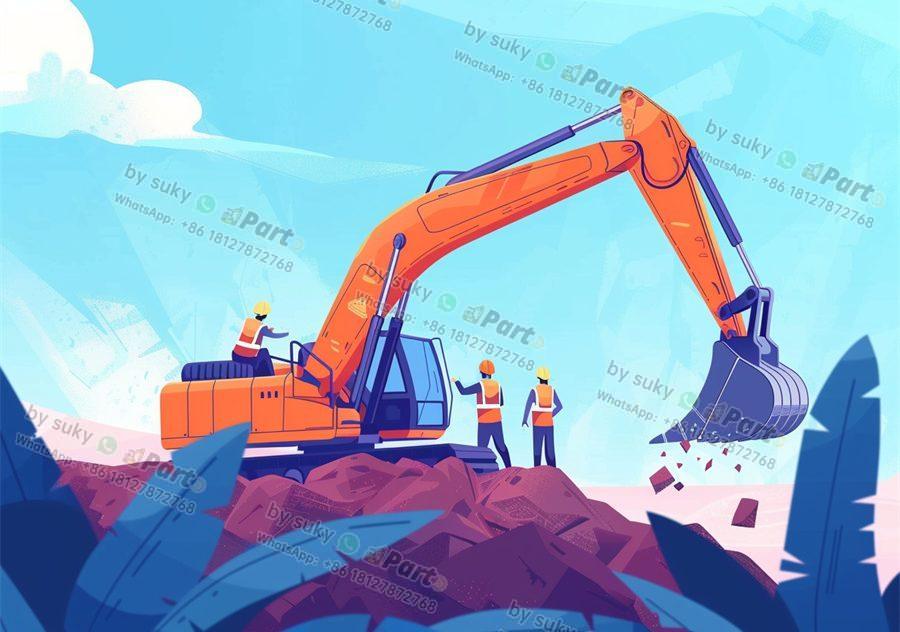The Impact of Quality Control on Customer Satisfaction in the Engineering Vehicle Parts Sector
Title: The Impact of Quality Control on Customer Satisfaction in the Engineering Vehicle Parts Sector
In the competitive world of engineering vehicle parts, customer satisfaction is key to success. Importers and distributors in this sector need to understand the crucial role that quality control plays in ensuring their customers are happy and loyal. In this article, we will explore the impact of quality control on customer satisfaction in the engineering vehicle parts sector.
Quality control is essential in the engineering vehicle parts sector for a number of reasons. Firstly, it ensures that the parts meet industry standards and regulations, reducing the risk of faulty products reaching the customer. This not only protects the reputation of the importer or distributor, but also builds trust with customers who know they can rely on the quality of the parts they are purchasing.
Furthermore, quality control can lead to cost savings in the long run. By identifying and rectifying any defects early on in the manufacturing process, importers and distributors can avoid costly recalls and returns. This not only saves money, but also prevents potential damage to the reputation of the company and the brand.
Another benefit of quality control in the engineering vehicle parts sector is improved customer satisfaction. When customers receive high-quality parts that meet their expectations, they are more likely to be satisfied with their purchase and become repeat customers. This not only increases sales, but also helps to build a loyal customer base that can drive long-term success for importers and distributors.
In conclusion, quality control plays a crucial role in ensuring customer satisfaction in the engineering vehicle parts sector. By implementing stringent quality control measures, importers and distributors can not only meet industry standards and regulations, but also build trust with their customers, save costs, and improve overall satisfaction levels. Investing in quality control is essential for long-term success in this competitive industry.
Why Quality Control Matters in Engineering Vehicle Parts Manufacturing
Title: Why Quality Control Matters in Engineering Vehicle Parts Manufacturing
In the competitive world of engineering vehicle parts manufacturing, quality control is an essential aspect that cannot be overlooked. Importers and distributors of these parts must understand the significance of maintaining high standards in order to ensure the safety and performance of the vehicles they are used in. In this article, we will explore the reasons why quality control is crucial in this industry.
1. Ensuring Safety and Reliability
One of the primary reasons why quality control is important in engineering vehicle parts manufacturing is to ensure the safety and reliability of the vehicles. Substandard parts can lead to malfunctions, breakdowns, and even accidents, putting not only the vehicle occupants at risk but also other road users. By implementing strict quality control measures, manufacturers can guarantee that their parts meet industry standards and are safe for use in vehicles.
2. Meeting Regulatory Requirements
Another reason why quality control is essential is to meet regulatory requirements. Many countries have strict regulations in place regarding the quality and safety of automotive parts. Failure to comply with these regulations can result in hefty fines, legal consequences, and damage to the reputation of the manufacturer. By conducting thorough quality control checks, manufacturers can ensure that their parts meet all necessary regulations and standards.
3. Building Trust with Customers
Quality control is also crucial for building trust with customers. Importers and distributors want to work with manufacturers who consistently deliver high-quality parts that perform as expected. By demonstrating a commitment to quality control, manufacturers can establish themselves as reliable and trustworthy partners in the industry. This can result in repeat business, word-of-mouth referrals, and a positive reputation in the market.
In conclusion, quality control is a vital aspect of engineering vehicle parts manufacturing. It ensures safety, reliability, and compliance with regulations, while also building trust with customers. Importers and distributors should prioritize working with manufacturers who place a strong emphasis on quality control to guarantee the best possible products for their customers. By investing in quality control measures, manufacturers can set themselves apart in the competitive market and establish long-lasting relationships with their clients.
How to Build Strong Relationships with Your Engineering Vehicle Parts Suppliers
Building strong relationships with your engineering vehicle parts suppliers is essential for the success of your business. By fostering a strong and mutually beneficial partnership with your suppliers, you can ensure timely deliveries, high-quality products, and competitive pricing. Here are some tips on how to build strong relationships with your engineering vehicle parts suppliers.
1. Communication is Key
Effective communication is the foundation of any successful relationship, including the one with your suppliers. Make sure to clearly communicate your expectations, requirements, and any changes in demand. Keep open lines of communication through phone calls, emails, and regular meetings to avoid any misunderstandings.
2. Build Trust and Transparency
Trust is crucial in any business relationship, and it is especially important when dealing with suppliers. Be transparent about your business practices, payment terms, and future plans. By building trust with your suppliers, you can create a more collaborative and efficient partnership.
3. Establish Clear Performance Metrics
Set clear performance metrics with your suppliers to track their performance and ensure they are meeting your expectations. These metrics can include on-time delivery rates, product quality, and customer service. Regularly review these metrics with your suppliers to address any issues and improve performance.
4. Invest in Relationship Building
Take the time to get to know your suppliers on a personal level. Building a strong relationship with your suppliers can lead to better communication, increased trust, and a greater understanding of each other’s needs. Consider inviting your suppliers to visit your facilities or attend industry events together to strengthen your partnership.
In conclusion, building strong relationships with your engineering vehicle parts suppliers is crucial for the success of your business. By prioritizing communication, trust, transparency, and performance metrics, you can create a partnership that benefits both parties. Invest time and effort into nurturing these relationships, and you will see improvements in product quality, delivery times, and overall business success.
Top Trends in the Engineering Vehicle Parts Industry
The engineering vehicle parts industry is constantly evolving, with new trends shaping the way importers and distributors operate. From cutting-edge technologies to sustainability initiatives, staying ahead of these trends is crucial for success in the competitive market.
Advanced Technologies Leading the Way
One of the top trends in the engineering vehicle parts industry is the integration of advanced technologies. From telematics and sensors to autonomous driving capabilities, manufacturers are incorporating these technologies into their products to improve efficiency and safety. Importers and distributors need to stay informed about the latest advancements to ensure they are offering the most innovative and up-to-date products to their customers.
Focus on Sustainability
Another key trend in the industry is the focus on sustainability. As the world becomes more conscious of environmental concerns, manufacturers are investing in eco-friendly materials and production processes. Importers and distributors should seek out suppliers who prioritize sustainability to meet the growing demand for environmentally friendly products. By aligning themselves with companies that share their values, importers and distributors can attract environmentally conscious customers and differentiate themselves in the market.
Rise of 3D Printing
3D printing is revolutionizing the engineering vehicle parts industry, allowing for more cost-effective and customizable manufacturing. Importers and distributors can take advantage of this trend by partnering with 3D printing companies to offer on-demand and personalized products to their customers. By staying agile and adaptable in the face of this technological shift, importers and distributors can stay ahead of the competition and meet the changing needs of their clients.
In conclusion, the engineering vehicle parts industry is experiencing rapid change and evolution, driven by advanced technologies, sustainability initiatives, and the rise of 3D printing. Importers and distributors must stay informed about these trends and adapt their strategies to remain competitive in the market. By embracing innovation and sustainability, importers and distributors can differentiate themselves and meet the growing demands of their customers in this dynamic industry.
Strategies for Biodiversity Conservation in a Changing Climate.
Strategies for Biodiversity Conservation in a Changing Climate
In today’s rapidly changing climate, biodiversity conservation has become more important than ever. As an importer or distributor of engineering vehicle parts, it is crucial to understand the impact of climate change on biodiversity and the role you can play in its conservation.
1. Understanding the Impact of Climate Change on Biodiversity
Climate change is causing a shift in ecosystems around the world, leading to habitat loss, species extinction, and changes in biodiversity. As temperatures rise, many species are struggling to adapt, leading to a decline in overall biodiversity. It is essential to understand how these changes are affecting the natural world and take steps to mitigate the impact.
2. Implementing Sustainable Business Practices
As an importer or distributor of engineering vehicle parts, there are several ways you can contribute to biodiversity conservation. One way is to implement sustainable business practices, such as reducing carbon emissions, minimizing waste, and supporting eco-friendly suppliers. By minimizing your environmental footprint, you can help protect the natural habitats of countless species.
3. Supporting Conservation Efforts
Another crucial strategy for biodiversity conservation is to support conservation efforts financially or through partnerships with conservation organizations. By donating to conservation projects or collaborating on initiatives to protect endangered species, you can make a significant impact on biodiversity preservation. Additionally, you can raise awareness among your customers and stakeholders about the importance of biodiversity conservation.
4. Promoting Green Initiatives
In addition to supporting conservation efforts, you can also promote green initiatives within your own organization. This could include investing in renewable energy sources, promoting the use of eco-friendly products, or implementing green transportation practices. By taking steps to reduce your environmental impact, you can help protect biodiversity for future generations.
In conclusion, as an importer or distributor of engineering vehicle parts, you have a unique opportunity to contribute to biodiversity conservation in a changing climate. By understanding the impact of climate change on biodiversity, implementing sustainable business practices, supporting conservation efforts, and promoting green initiatives, you can play a vital role in preserving the natural world. Together, we can work towards a more sustainable future for all species on Earth.
The Impact of Biodiversity Loss on Ecosystem Services
Title: The Impact of Biodiversity Loss on Ecosystem Services
Biodiversity loss is a pressing issue that has far-reaching consequences on ecosystem services. For engineering vehicle parts importers and distributors, understanding the link between biodiversity and ecosystem services is crucial in promoting sustainable practices within their industry.
Importance of Biodiversity in Ecosystem Services
Biodiversity plays a fundamental role in maintaining ecosystem services such as carbon sequestration, pollination, and water purification. For engineering vehicle parts businesses, these services are essential for the smooth operation of their activities. Without biodiversity, ecosystems become less resilient and are unable to provide the necessary services that support human well-being.
Impacts of Biodiversity Loss on Ecosystem Services
The loss of biodiversity has detrimental effects on ecosystem services that can directly impact engineering vehicle parts importers and distributors. For example, the decline in pollinators such as bees and butterflies can lead to reduced crop yields, affecting the supply chain of vehicle manufacturing. Additionally, the degradation of ecosystems due to biodiversity loss can result in increased vulnerability to natural disasters, disrupting operations and causing financial losses.
Promoting Biodiversity Conservation in the Engineering Vehicle Parts Industry
To mitigate the impacts of biodiversity loss on ecosystem services, engineering vehicle parts importers and distributors can take proactive steps to promote biodiversity conservation. This can include sourcing materials from suppliers who practice sustainable land management, supporting initiatives that protect natural habitats, and investing in research and development for eco-friendly products. By incorporating biodiversity considerations into their business strategies, companies can contribute to the preservation of ecosystem services essential for their operations.
In conclusion, biodiversity loss has significant repercussions on ecosystem services, which in turn affect the engineering vehicle parts industry. By recognizing the importance of biodiversity conservation and taking proactive measures to promote sustainability, businesses can help safeguard ecosystem services for future generations. It is essential for engineering vehicle parts importers and distributors to prioritize biodiversity conservation as part of their corporate responsibility efforts.



